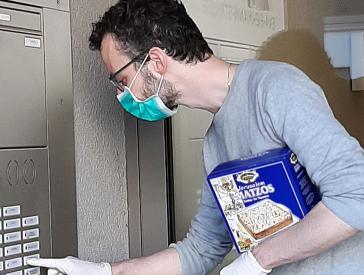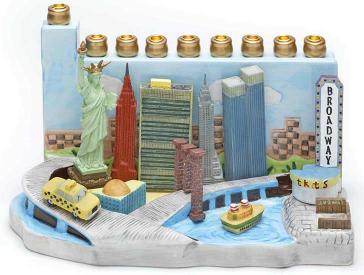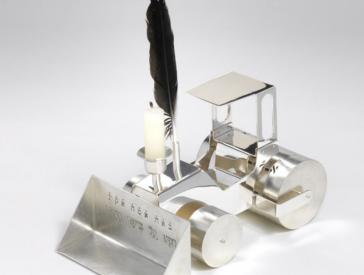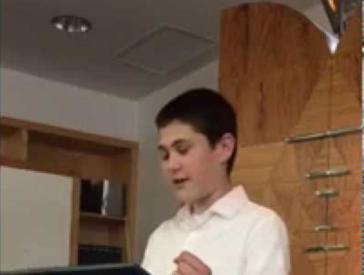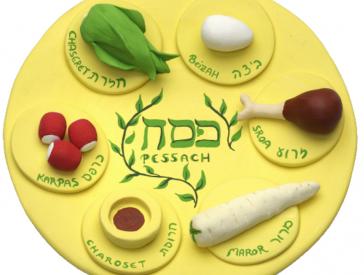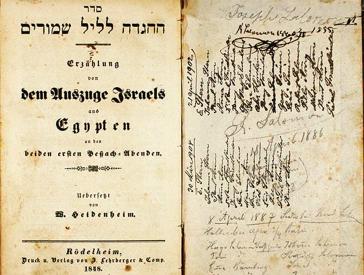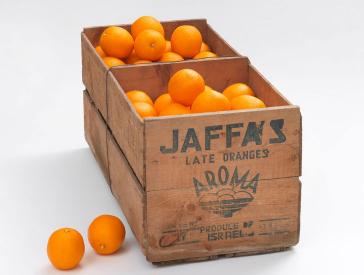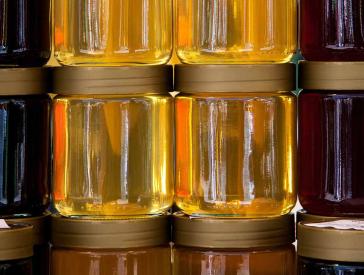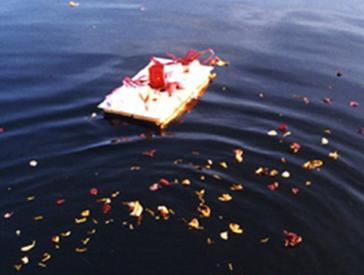Neue Bräuche zum Neujahr
Taschlich-Schiffchen statt Brotkrumen im Landwehrkanal
Vor einigen Jahren besuchte eine Gastdozentin aus New York die Berliner Synagoge am Fraenkelufer und zeigte uns, wie ihre Gemeinde einen alten Neujahrsbrauch – Taschlich – neu praktiziert.
Das traditionelle Taschlich-Gebet spricht man am Nachmittag des ersten Rosch ha-Schana Tages. Üblicherweise versammeln sich Gläubige am jüdischen Neujahrsfest Rosch ha-Schana an einem Fluss und streuen Brotkrumen ins Wasser, um sich symbolisch ihrer Vergehen des vergangenen Jahres zu entledigen. In den Landwehrkanal gegenüber der Synagoge entließ die US-Dozentin jedoch nicht Krumen, sondern ein selbstgebasteltes Papierschiffchen, dem sie einen Brief an Gott mitgab. Darin bat sie um Vergebung für ihre Fehler und beteuerte ihre guten Vorsätze. Der Brief enthielt auch einen Dank für die schönen Erlebnisse des letzten Jahres und ihre Wünsche für das kommende Jahr.
Der Brauch kam in der Synagoge am Fraenkelufer gut an. Kurz vor dem ersten Abendgottesdienst treffen sich seither viele Gemeindemitglieder an der Uferstelle und schicken ihre bunten Taschlich-Schiffchen auf See. Der Brauch hat sich sogar noch ausgeweitet:
Letztes Jahr warfen einige den Booten Blütenblätter von gesammelten und getrockneten Blumensträußen hinterher. Das passt zum Thema des Verzeihens, denn oft bekommt man Blumensträuße als Geste der Entschuldigung. So schickt man gewissermaßen die „Entschuldigungsblumen“ des letzten Jahres fort und kehrt mit dem leeren Behälter heim, der wieder für neue Blüten bereit steht.
Unbeabsichtigt, auch wenn vielleicht nicht überraschend, ist dieses Ritual bei Frauen und Mädchen besonders beliebt – wie bei der Tochter meiner Freundin, die das Foto mit ihrem Taschlich-Schiffchen zeigt. Es empfiehlt sich, die Briefe anonym zu halten, da sie in die Hände neugieriger Kreuzberger*innen treiben könnten. Der eigentliche Empfänger wird schon wissen, wer den Brief losgeschickt hat ;-)
Schana Tova!
Shlomit Tripp
Zitierempfehlung:
Shlomit Tripp (2012), Neue Bräuche zum Neujahr. Taschlich-Schiffchen statt Brotkrumen im Landwehrkanal.
URL: www.jmberlin.de/node/6481
Feiertage: Alte Riten, neue Bräuche (19)



 X
X

 X
X
